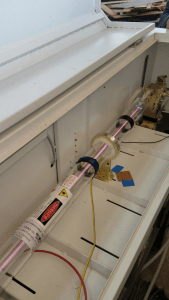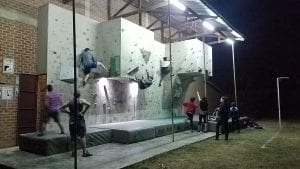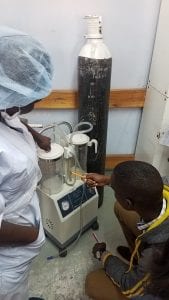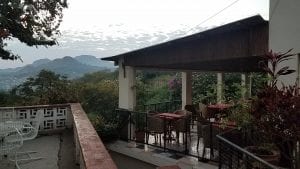[20 July 2018]
So much has happened this last week. It seems getting the laser cutter working triggered everything else to happen all at once!
First of all, I’ve made a lot of progress tuning the cutter and learning how to use it properly. The alignment procedure had to be repeated, but all the previous work made it go very smoothly. The cutter software, however, has been a point of much frustration! As if technical manuals weren’t obscure enough, this one is written in often unintelligible English. Well, careful experimenting with the hints provided in the manual have been working so far. The problem now, is figuring out how to balance laser power and speed, to produce a cut which can burn through a thin layer of paper, without damaging a plastic layer underneath. I’ve most of the cuts down pretty well, but the laser is determined to melt little pin-holes at all the design corners!
At the end of last week, Gloria, one of the Malawian interns working with Franklin, invited everyone over to her house for dinner! We have all really taken to the food here in general, but the chance to be a part of cooking it at someone’s home was really exciting. There were many other Malawians there, and it turned into a nice party with all of us telling stories and listening to great music together.
Alyssa and Jessie also arrived this last week, and brought lots of supplies the Polytechnic had ordered in a giant camping backpack! I wish I’d caught a photo of Francis when we went through everything – he looked like it was Christmas Day.
Over the weekend, we hiked Chombe peak at Mt. Mulanje, which can only be adequately described with photographs. Well, close, anyhow. This is such a beautiful country! It also happened to be the same weekend of the porter’s races, during which the local porters compete in a footrace from the bottom to the top of the mountain. There was a gigantic party crowded around the finish line, big speakers were blasting music, competing with people in front of colorful stalls, yelling at everyone to try this or buy that. We weaved through the packed crowd with our backpacks, following our mountain guide up past the finish line, where we saw one of the racers coming down this last foothill barefoot. Some of these porters ran barefoot! I still can’t believe it. Others still, if I understand correctly, complete the race with big packs or loads on their heads, but I didn’t see any of them. It’s incredible to think about though, that they can do in hours what we were about to do in two whole days – amazing what people can condition themselves to accomplish.
The rest of the week has been filled with attempts to cut these paper-layered plastic sheets properly. It won’t make for much of a good story, all these experiments. I am reminded now of those many days spent in the laboratory back at Rice, making the original versions. Every failed attempt (there were many) had to be met with an open mind so we could glean information from it, building little successes out of them in the form of understanding, until one day it worked. It will be so rewarding to have figured this out, and to make that first batch of good cards which could one day be used down the street at the hospital.



